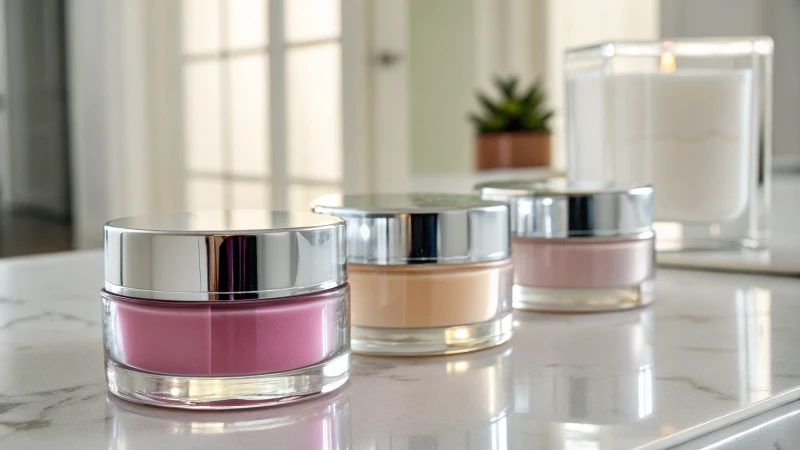
Ever opened a jar of moisturizer months after buying it and found it as fresh as day one? The magic is in the jar itself.
Double-walled cosmetic jars improve product preservation by blocking air and light, which extends the product’s shelf life. These jars provide insulation against temperature fluctuations, reducing the risk of degradation. Incorporating airless pump technology further enhances protection by preventing air exposure and contamination.
I remember the first time I learned about double-walled jars—my skincare products were always losing their potency way too quickly. I decided to explore better packaging options and discovered that these jars are like guardians for your cosmetics, shielding them from harmful elements. They use high-quality materials to combat temperature swings and include airless pump technology to keep air out. This means the precious ingredients stay active longer, which is a game-changer for anyone serious about their skincare. So next time you’re picking out a jar, think about the hidden benefits of double-walled protection—it might just be the key to getting the most out of your beauty routine.
Double-walled jars block air and light.True
These jars are designed to prevent air and light, extending shelf life.
Airless pump technology increases contamination risk.False
Airless pumps reduce contamination by preventing air exposure.
What Should You Consider When Selecting Materials for Double-Walled Jars?
Ever wondered why the choice of materials for double-walled jars is so crucial? Let me share some insights from my own experiences that could make all the difference.
Choosing materials for double-walled jars involves weighing thermal insulation, durability, and sustainability. Opt for high-quality resins or glass to prevent cracks and leaks, and explore eco-friendly materials like recycled plastics.
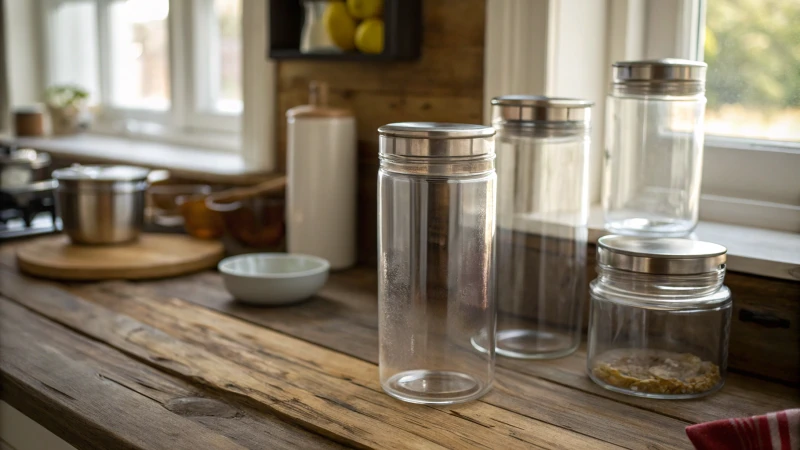
I remember the first time I had to decide on materials for double-walled jars. It felt like standing at a crossroad of choices, each with its pros and cons. Thermal insulation was at the top of my checklist. You see, I once had a batch of sensitive skincare products that almost got ruined because their jars didn’t handle temperature changes well. Since then, I’ve always prioritized high-quality resins or glass formulations that offer superior thermal resistance.
Importance of Thermal Insulation
Thermal insulation isn’t just a fancy term—it’s what keeps your product stable against temperature swings. High-quality resins or glass can truly make a difference by enhancing thermal resistance and preventing those dreaded cracks and leaks. This is especially critical if your products are heat-sensitive, like certain cosmetics that need effective insulation to last longer.
Material Options:
- Glass: Yes, it’s heavier, but nothing beats its insulation quality.
- High-grade Plastic: It’s lighter and great for travel, but you might need to compromise slightly on insulation.
Durability and Material Quality
Durability is another key player here. The materials I choose must withstand daily use and transport without breaking a sweat (or cracking, in this case). It’s worth asking suppliers for certifications like FDA approval for skincare jars, as these verify material quality and ensure safety. Trust me, it saves a lot of headaches later on from discoloration or degradation over time.
| Material | Advantages | Disadvantages |
|---|---|---|
| Glass | Durable, inert | Heavier, fragile |
| Plastic | Lightweight, versatile | Potential chemical interaction |
Sustainability in Material Choice
There’s also a green angle to consider. Sustainability has been gaining momentum, and I’ve seen brands leaning towards plant-based plastics or recycled materials. It’s not just about being eco-friendly—it’s about meeting consumer expectations and regulatory demands like the EU Green Deal.
- Recycled Plastics: They help reduce waste and conserve resources.
- Biodegradable Resins: These break down naturally, which is a win for the planet.
Learn more about sustainable packaging materials1 and their benefits for your brand.
Chemical Compatibility and Safety
I can’t stress enough how important it is to ensure chemical compatibility between the jar material and the contents. Some plastics might react with active ingredients, so choosing an inert inner lining or barrier is crucial.
For more insights, check out packaging safety standards2 to make sure everything’s up to code internationally.
Cost vs. Quality: Finding the Balance
Finally, finding that sweet spot between cost and quality can be tricky. While top-notch materials might pinch your wallet initially, they pay off by cutting down on returns and wasted products in the long run. This has been a game-changer for my brand’s reputation and has allowed us to set premium prices confidently.
If you’re curious about how to balance cost and quality effectively, explore this guide: how to balance cost and quality3.
By focusing on these key considerations, you can enhance the performance and appeal of your double-walled jars. This not only boosts customer satisfaction but also strengthens brand loyalty.
Glass jars offer superior thermal insulation.True
Glass provides excellent thermal insulation, maintaining product stability.
All plastics used in jars are chemically inert.False
Some plastics can react with contents, compromising product integrity.
How Does Airless Pump Technology Enhance Preservation?
I remember the first time I stumbled upon airless pump technology; it felt like I’d discovered a secret weapon for preserving my favorite skincare products. The innovation behind this technology is not just impressive but downright essential for maintaining the potency and freshness of cosmetics.
Airless pump technology enhances preservation by eliminating air contact, preventing oxidation and ingredient degradation. This ensures product integrity, longer shelf life, and reduces contamination risks, making it superior to traditional packaging.
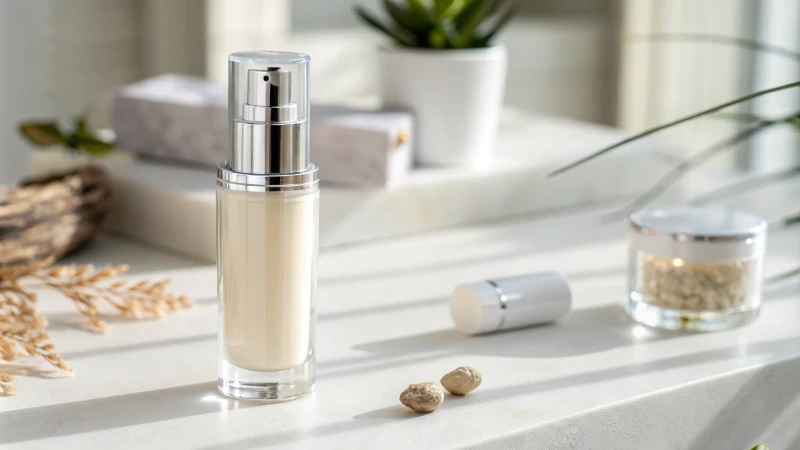
The Mechanism Behind Airless Pumps
Imagine a world where your favorite serums and creams stay as fresh as the day you bought them. That’s what airless pumps do! They use a non-pressurized vacuum system that cleverly prevents air from sneaking into the container. Unlike those old-school pumps with straws, these systems use a piston mechanism to deliver the product without letting air in, keeping everything inside pristine.
Benefits Over Traditional Packaging
I’ve seen firsthand how air exposure can turn a once-vibrant product into a lackluster shell of its former self. With airless pumps:
- Reduced Oxidation: Oxidation is the enemy of active ingredients like antioxidants4 and vitamins. Airless pumps keep these enemies at bay.
- Contamination Prevention: By minimizing contact with air and bacteria, these pumps are perfect for natural formulations5 that skip preservatives.
- Consistent Dosage: Each pump gives you the same amount every time, cutting down on waste and making sure you get the most out of your product.
Applications in Cosmetic Industry
In cosmetics, where delicate ingredients like peptides or vitamin C are common, airless pumps are crucial. They maintain an airtight environment that’s vital for preserving these effective ingredients6.
| Ingredient | Susceptibility | Benefit of Airless Pump |
|---|---|---|
| Peptides | Oxidation | Extended shelf life |
| Vitamin C | Light & Air | Maintained potency |
| Retinoids | Degradation | Enhanced stability |
Innovations in Airless Technology
Recently, I’ve noticed a shift towards eco-friendly airless pumps made from recyclable materials, which is fantastic news for sustainability fans. These advancements not only improve preservation but also meet the growing demand for sustainable packaging7.
By integrating airless pump technology into our products, we can enhance preservation while also aligning with our commitment to eco-friendly practices. It’s about protecting what’s inside while caring for the world outside.
Airless pumps prevent product oxidation.True
Airless pumps eliminate air exposure, reducing oxidation risk.
Traditional pumps offer better contamination prevention.False
Airless pumps minimize air and bacteria contact, unlike traditional ones.
Why Does Packaging Matter in Cosmetic Formulation?
Ever wonder why your favorite lotion or cream feels and looks so good? Well, the secret often lies in the packaging.
Packaging in cosmetics is vital for protecting the product, prolonging its shelf life, and improving user experience. It shapes brand perception and ensures regulatory compliance.
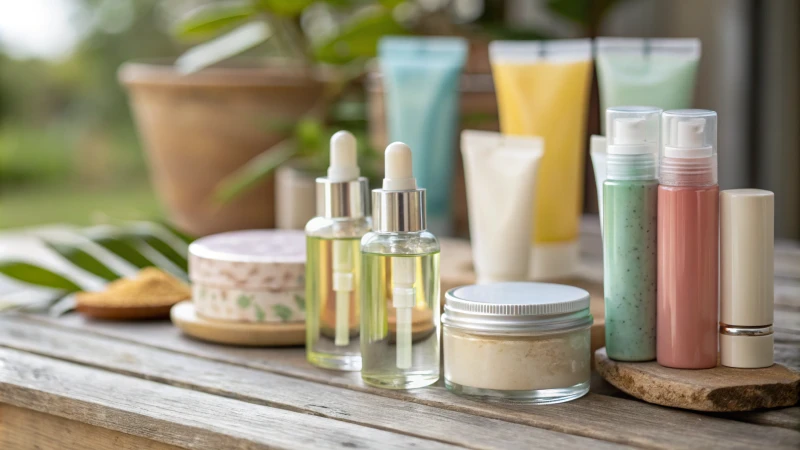
Preservation and Protection
I remember the first time I launched a product. The excitement was electric, but I quickly learned that preserving its quality was paramount. That’s where good packaging comes in. Imagine this: your favorite moisturizer sitting on your bathroom shelf. It’s been there for months, yet every time you use it, it’s as fresh as the day you bought it. This magic happens because high-quality packaging protects it from light, air, and temperature changes. Those sleek double-walled jars? They’re not just for show—they’re a fortress against ingredient degradation.
Example: Airless pumps are like tiny guardians, keeping oxygen at bay to maintain the potency of active ingredients.
Enhancing User Experience
Think back to a time when you struggled with a stubborn bottle cap or wasted product because the packaging design wasn’t user-friendly. Frustrating, right? Great packaging transforms that experience. Designs like pump dispensers or squeezable tubes are not just convenient; they’re thoughtful touches that show a brand cares about its users. A well-designed package can make all the difference in choosing between two products on a crowded shelf.
| Feature | Benefit |
|---|---|
| Airless Pump | Protects from contamination |
| Double-Walled Jar | Insulates against temperature changes |
Regulatory Compliance
Navigating the maze of regulatory standards can be daunting, but it’s crucial for safety and trust. I once faced a compliance issue that taught me the importance of verifying certifications like ISO 227168 for good manufacturing practices. Trust me, it’s worth the effort to avoid legal headaches.
Tip: Always verify certifications when sourcing packaging to avoid legal issues.
Sustainability Considerations
Sustainability isn’t just a buzzword—it’s a movement. Today, more than ever, consumers care about eco-friendly options. I once worked with a supplier who offered biodegradable materials, and seeing how positively our customers responded was inspiring.
Actionable Tip: Seek suppliers offering recyclable or compostable packaging options to align with sustainability goals.
Impact on Branding
The visual appeal of packaging is like a calling card for your brand. I’ve seen firsthand how a luxurious package can elevate a product’s perceived value. Those embossed logos or unique color schemes? They’re what make a product leap off the shelf into a shopper’s basket.
Example: Embossed logos or tailored color schemes can make a product stand out on the shelf.
Airless pumps prevent oxidation in cosmetics.True
Airless pumps limit air exposure, preserving active ingredient potency.
Cosmetic packaging does not affect brand perception.False
Packaging design influences consumer perception and purchasing decisions.
How Do Environmental Factors Affect Packaging Effectiveness?
Have you ever wondered why your skincare products sometimes don’t quite hold up as expected?
Environmental factors like temperature changes, humidity, and light exposure can significantly impact packaging effectiveness, leading to potential product damage or degradation. Choosing the right materials and technologies is essential to counter these effects.
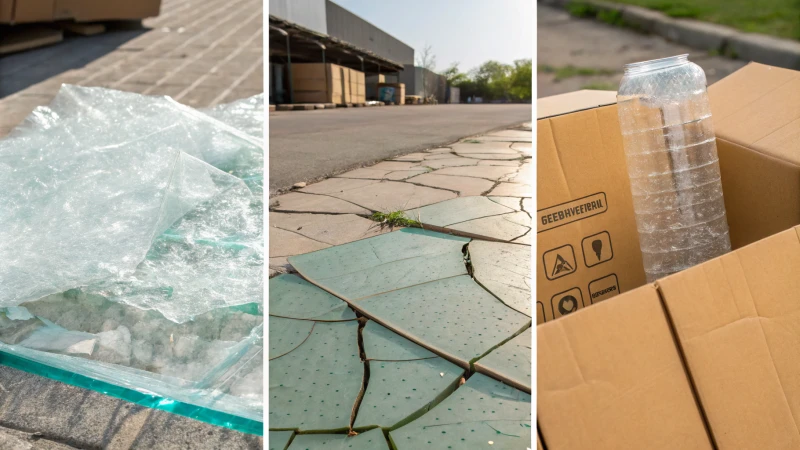
Temperature Fluctuations and Packaging
I remember the first time I realized how temperature changes could wreak havoc on packaging. It was a sweltering summer day, and the heat had warped a batch of cream jars we received. The double-walled jars are supposed to offer thermal insulation, but not all materials are created equal. High-grade resin9, for instance, resists deformation far better than standard plastics.
Humidity’s Role in Packaging Stability
Humidity isn’t just uncomfortable; it can also spell disaster for packaging. I once opened a shipment of skincare products only to find condensation inside the jars—mold’s best friend. That’s when I learned the value of airless pump technology in keeping moisture out, maintaining product integrity10.
Light Exposure and Material Degradation
Sunlight can be a silent destroyer of packaging, especially if you’re using transparent materials. After seeing firsthand how UV light degraded some of our containers, I now swear by UV-resistant polymers to protect sensitive ingredients like antioxidants11. Opaque packaging can also help reduce light exposure.
The Climate’s Impact on Logistics
Shipping products across climates is like sending them on a rollercoaster ride. I remember when a batch of products arrived looking worse for wear after a winter journey across Europe. Since then, thermal wraps and temperature-controlled shipping have become my go-to solutions for ensuring packaging and product integrity.
Sustainability Considerations
Balancing sustainability with packaging effectiveness is a constant challenge. I’ve explored biodegradable resins and recycled plastics to meet eco-conscious demands without compromising on protection. It’s about finding that sweet spot between environmental responsibility and functionality.
| Factor | Impact | Solution |
|---|---|---|
| Temperature | Material deformation | Use double-walled jars, high-grade resin |
| Humidity | Moisture intrusion | Airless pumps, moisture-resistant coatings |
| Light Exposure | Material degradation | UV-resistant polymers, opaque designs |
| Climate | Compromised transit conditions | Thermal wraps, controlled shipping |
| Sustainability | Environmental impact | Biodegradable resins, recycled plastics |
Understanding these environmental impacts has been key in helping companies protect their products while satisfying consumer demands for both durability and sustainability in packaging solutions12.
Temperature changes cause packaging deformation.True
Materials expand or contract with temperature fluctuations, leading to deformation.
Humidity does not affect packaging stability.False
Humidity promotes condensation, leading to corrosion or mold in packaging.
Conclusion
Double-walled cosmetic jars enhance product preservation by blocking air and light, utilizing thermal insulation, and incorporating airless pump technology to extend shelf life and maintain ingredient integrity.
-
Explore how sustainable materials like recycled plastics enhance brand appeal and reduce environmental impact. ↩
-
Ensure your packaging complies with global safety standards to protect product integrity. ↩
-
Learn strategies to effectively balance cost and quality in packaging design. ↩
-
Learn how antioxidants protect skin from damage and enhance overall skin health. ↩
-
Explore the advantages and challenges of using natural ingredients in skincare without preservatives. ↩
-
Discover methods to ensure your skincare products retain their efficacy over time. ↩
-
Find out about environmentally friendly packaging choices that reduce waste and support sustainability. ↩
-
Discover the significance of ISO 22716 certification in ensuring safe cosmetic packaging practices. ↩
-
Discovering high-grade resins can guide material selection to prevent deformation under temperature fluctuations. ↩
-
Understanding airless pump benefits helps maintain product integrity by preventing moisture intrusion. ↩
-
Learning about UV-resistant polymers aids in protecting sensitive ingredients from light degradation. ↩
-
Knowing climate impacts on logistics ensures both packaging and products remain intact during transit. ↩



